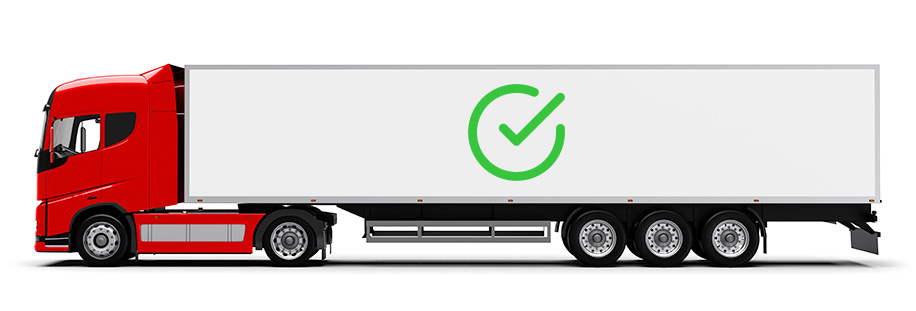International logistics is not just the process of delivering goods from one country to another. It is a complex, multi-layered system that ensures uninterrupted movement of goods, effective supply chain management, and compliance with all international standards and regulations. If you want to know what lies behind this industry, why it is so important, and how to properly organize international shipments—read on. We will cover the key stages, provide a clear definition, and share our company’s experience in this field.
Definition of International Logistics
International logistics is a comprehensive process that includes planning, organizing, and managing the flow of goods, services, and information across countries. It is not just door-to-door delivery; international logistics encompasses all processes related to crossing borders and interacting with various legal, economic, and cultural environments. Effective international logistics helps businesses not only establish seamless supply chains but also optimize costs, improve customer service, and minimize risks.
The Importance of International Logistics
Modern international logistics plays a critical role in the global economy. According to a McKinsey study, around 80% of global shipments are handled by international logistics companies. Today, international shipments have become a cornerstone of any successful company. This is especially relevant for Ukraine, where many companies actively export products and open new markets despite the challenging situation in the country.
Main Elements of International Logistics
- Transportation. The core part of any logistics process. At the transportation stage, it is crucial to choose the optimal delivery method: air, sea, road, or rail. For example, sea freight accounts for approximately 90% of international shipments globally, as it is the most economical option for large cargo.
- Customs Clearance. No international transaction is complete without proper customs clearance. Each country has its own rules and regulations, so it is important to handle customs formalities in advance to avoid delays and additional costs.
- Cargo Insurance. One of the most critical stages, as cross-border transportation is always associated with risks. According to insurance companies, on average, about 10% of cargo encounters damage during transit.
- Warehouse and Inventory Management. Effective inventory management ensures seamless order fulfillment and minimizes costs associated with storing and transporting goods.
- Monitoring and Coordination. Continuous monitoring and control enable potential delays to be identified early and the delivery plan to be adjusted accordingly.
Contact the comprehensive international logistics services of the «Ukrautologistic» Group. With our experience and dedication, we optimize your supply chain, increase business process efficiency, and help reduce costs.

Features of Working with International Partners
International logistics requires a deep understanding of cultural and business differences. At «Ukrautologistic» Group, we have found that successful cooperation depends not only on efficient execution of logistics processes but also on understanding the specifics of working with foreign partners. For example, in European countries, precision and punctuality are crucial, whereas in Southeast Asia, considerable emphasis is placed on building trust-based relationships.
Over the years, we have established effective routes to European countries, adapting our processes to local norms and requirements. For instance, in collaboration with German companies, we optimized our warehouse storage system, which allowed us to reduce costs by 15% and accelerate delivery times by 10%. Thanks to our efforts, we have improved service quality and reduced costs for our clients, securing long-term cooperation with major European partners.
How to Choose a Logistics Partner for International Shipments
When choosing a logistics partner for international shipments, several factors should be considered:
- The company’s reputation in the market;
- Experience in working in the countries you are interested in;
- Service level and the ability to customize services;
- Pricing policy and transparency of calculations.
We also recommend consulting reputable sources to study the logistics services market in Ukraine, such as data from the State Statistics Service of Ukraine, the Ministry of Infrastructure of Ukraine, and industry portals.
«Ukrautologistic» Group is your reliable partner in international transportation! We optimize logistics so you can focus on business growth. Order transportation or get a cost estimate!
In 2024, international logistics in Ukraine faces numerous challenges and changes that significantly impact the market. Here are some key statistics and trends:
Main Logistics Issues in Ukraine in 2024
- Port Closures: The closure of the Black Sea and Azov Sea ports has halted maritime transportation, which accounts for about 70% of Ukraine’s total export and import volume. This has led to rising prices for goods and food shortages.
- Air Transport: Since the closure of air transport on February 24, 2022, the volume of international shipments has significantly decreased, complicating logistics for export-import operations.
- Instability in Rail Transport: Rail transport remains a primary mode of transportation but is vulnerable to disruptions due to shelling and mining.
- Insufficient Infrastructure: Many roads and storage facilities were destroyed during the war, slowing down logistics operations.
New Solutions and Opportunities
- Shift to Road and River Transport: With ports closed, these modes of transport have gained importance.
- Development of Multimodal Transport: Combining different transport modes helps reduce risks and improve logistics efficiency.
- Implementation of New Technologies: Using blockchain and artificial intelligence can enhance the efficiency of logistics companies.
Revenue Statistics
In 2024, revenue for companies in the transport and postal sectors increased by 14%, reaching 219.82 billion UAH. The highest profit was recorded by Ukrtransnafta, while Ukrposhta incurred losses.
Development Prospects
Despite challenging conditions, logistics in Ukraine has growth potential. The adoption of new technologies and adaptation to current challenges create opportunities to improve logistics companies’ efficiency.
Thus, the state of international logistics in Ukraine in 2024 is complex but holds potential for development through adaptation to the new market conditions.
Prospects of International Logistics: Technology and Sustainable Development
The future of international logistics lies in new technologies. Companies are already implementing artificial intelligence for route analysis, real-time cargo tracking, and demand forecasting. Another important area is eco-friendly logistics: using alternative fuels, reducing CO₂ emissions, and optimizing supply chains to decrease environmental impact.
Conclusion
International logistics is a strategically important process on which a company’s success in the global market depends. Effective management of international shipments helps reduce costs, improve service quality, and strengthen market positions. Our company is ready to share our experience and offer effective solutions to help your business successfully enter the global market.
And remember, for detailed information on international logistics regulations and answers to any questions, our experts are always available and happy to assist you.




